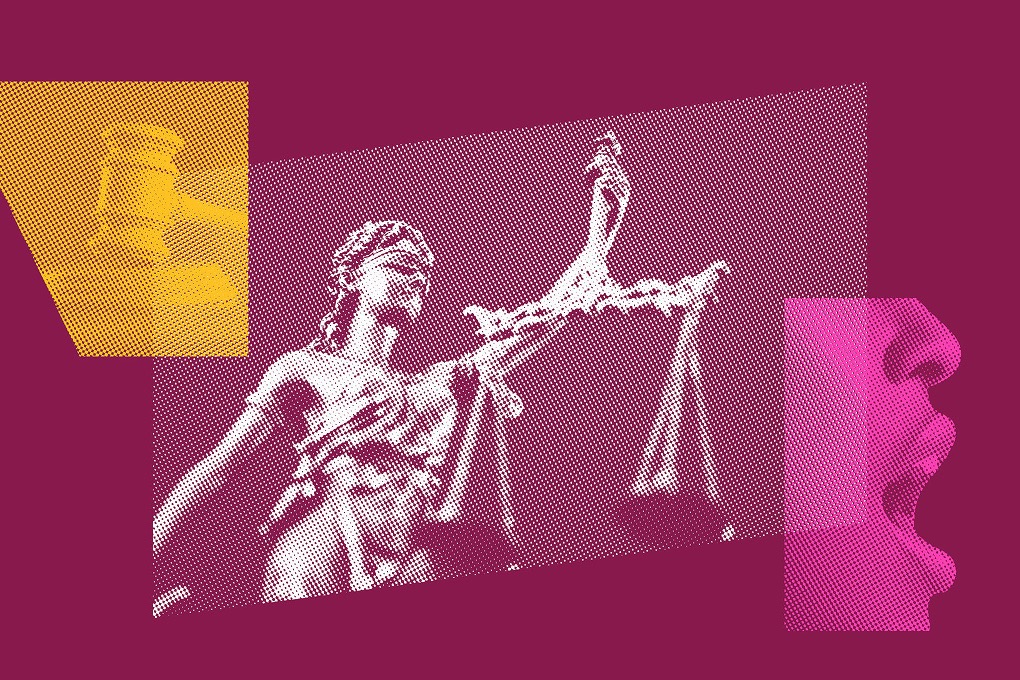Father Sues Ronald McDonald House Alleging Housing Policy Disproportionately Harms People of Color
The lawsuit argues that Ronald McDonald House’s criminal conviction ban violates state and federal anti-discrimination law; Plaintiff Juan Mieles was denied housing near the hospital where his son was being treated for cancer.
White Plains, NY – Today, the Legal Action Center (LAC), the American Civil Liberties Union (ACLU), and the New York Civil Liberties Union (NYCLU) jointly filed a complaint against Ronald McDonald House of the Greater Hudson Valley (RMH) and Ronald McDonald House Charities, Inc. (RMHC) for discriminating against Plaintiff Juan Mieles by denying housing to him and his family, based solely on his past conviction, during his son’s hospitalization for intensive cancer treatment. The organizations’ blanket criminal conviction policy banning all individuals with a broad range of convictions, without consideration of individual circumstances, has an unjustified, discriminatory effect on Black and Latine individuals and families, like Mr. Mieles’s, in violation of the federal Fair Housing Act and New York State law.
Across the country, Ronald McDonald House provides housing for families close to the hospitals where their children are receiving care for life-threatening conditions, but when Mr. Mieles and his family needed this housing, RMH turned them away. RMH and RMHC’s housing policy made an already devastating situation even more challenging, adding to the entire family’s emotional distress and costing them precious time together during this incredibly difficult time.
“Getting our son’s diagnosis and learning his cancer was already advanced was obviously very scary. When he needed a stem cell transplant that could mean months in the hospital, we thought the Ronald McDonald House would help our family get through it. I was shocked when they told us we had to leave because of my conviction. I felt like the time I served and all the work I’d done over these years to put my life on the right track will never matter—once you have a record, you’re done, it will always follow you,” said Mr. Mieles. “Our son is still just a kid, and he was scared. It was heartbreaking to see him suffering and not be able to be with him all the time. Driving hours back and forth every day for weeks was a nightmare for my whole family, but we had no choice. My partner was pregnant, our baby was only eight months old, and our teenaged daughter was trying to keep up with school on top of everything. Being rejected by Ronald McDonald House took a very heavy toll on all of us. Now our son’s cancer is back, and he will need another difficult procedure with another long hospital stay. I can’t even think about how my family will get through this all over again.”
Due to systemic racism in the criminal legal system, Black and Latine people in the United States are over-policed, over-charged, over-prosecuted, over-incarcerated, and over-sentenced, leading to their overrepresentation throughout the system. In New York State, three-quarters of the formerly incarcerated population is Black or Latine. As a result, policies like those implemented by RMH have an outsized harm on communities of color. Under the Fair Housing Act and the New York State Human Rights Law, policies that have an unjustified and unnecessary discriminatory effect on the basis of race, color, or national origin are unlawful.
“Ronald McDonald House’s policy is just one example of the many ways that the criminal legal system perpetually harms individuals and families. Housing providers, employers, and other decision-makers routinely reject people with conviction records for years and even decades after an offense, without considering what the person has done with their life since. Not only are these practices unjust, significant to this case, research shows that a past criminal conviction is not a good determinant of a person’s qualities as a neighbor or tenant,” explained Diane Johnston, senior staff attorney at LAC. “Since returning home, Mr. Mieles has worked hard to put his past behind him, providing for and supporting his family, and serving as an essential caregiver to his son. Even in the context of trying to keep his family together and care for his ill child, Mr. Mieles and his entire family were penalized.”
“Federal and New York State government agencies have long warned housing providers that unjustified and unnecessary blanket bans from housing based on criminal history disproportionately harm Black and Latine people and are unlawful,” said Amanda Meyer, senior staff attorney in the ACLU’s Racial Justice Program. “Ronald McDonald House’s policy does not allow for an individualized assessment of a person’s circumstances, including their conduct since the offense or the needs of their family for housing. Their denial has deprived Mr. Mieles and his family of precious time together during one of the worst time periods of their lives—while their son battled cancer.”
“Too often, formerly incarcerated Black and Brown people are locked out of housing opportunities, making it harder to access vital resources like Ronald McDonald House,” said Rubin Danberg Biggs, Skadden fellow at the New York Civil Liberties Union. “Discriminatory housing policies such as Ronald McDonald House’s blanket ban only serve to extend punishment beyond a court sentence. People like Mr. Mieles are our family, friends, and community members, and their past should not determine whether they can live in dignified and affordable housing.”
This litigation is being led by Diane Johnston, Courtnie Drigo, and Jennifer Sinton for LAC; Amanda Meyer, Alejandro Ortiz, and Alexis Alvarez for the ACLU; and Rubin Danberg Biggs and Molly Biklen for NYCLU.
A copy of the complaint can be found here: https://www.aclu.org/documents/mieles-v-rmh-rmhc-complaint

